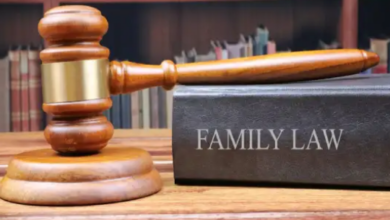The Paraquat Lawsuit: Its Beginning, Its Consequences, and Its Present Situation

Do you know anyone who suffers from Parkinson’s disease? Have you ever thought if that person has been in contact with herbicides or weed killers like Paraquat before being diagnosed? Is that person you? If you can connect all these dots you may need to know more about the Paraquat lawsuit and the health issues generated by being in contact with this recognized and effective herbicide.
What is the Paraquat lawsuit?
The paraquat lawsuit is a class action court case created after individuals had been in contact with or exposed to the herbicide. According to the plaintiffs, the victims have developed Parkinson’s disease and other degenerative neurological disorders after having been in contact with the herbicide. As a consequence, they decided to file the agrochemical companies Syngenta and Chevron Inc., asking for compensation for the damages.

In order to file a lawsuit against these defendants, the victims have to gather enough evidence to prove that they have manipulated or been exposed to Paraquat and that they suffer from Parkinson’s disease. In any of the cases, it is always advisable to contact professional legal help since the steps to file a lawsuit are not simple and the attorneys can provide the right guidance towards a successful settlement.
Moreover, those people who have not been directly exposed to the product but have lived in the area where the herbicide has been used could potentially file a lawsuit if they can prove the connection to the disease. However, each plaintiff has to undergo complex and personalized evaluations and that’s the reason why it is important to consult professionals to prepare the case.
The Paraquat lawsuit effect
During all these years, since the first case was presented, there have been many changes in the herbicide industry as a consequence of the large number of lawsuits. After all the medical evidence presented in the numerous lawsuits, the herbicide, although not banned at all, is authorized for restricted use.

Among the limitations stated as a consequence of the lawsuits filed, we can find the following:
- This chemical must not be kept in close proximity to residential areas. It should only be used in large areas far from the city center.
- It is essential not to transfer this product into containers intended for food, beverages, or any other purposes. It should not be in contact with any product that may be consumed.
- Paraquat should never be utilized in the vicinity of educational institutions, domestic gardens, play areas, or golf courses.
- Due to its high toxicity, the EPA was required to establish fresh regulations for airborne applications of paraquat.
- Paraquat should only be managed by applicators who are trained and licensed.
Why do people want to file a Paraquat lawsuit?
Since Parkinson’s disease can be debilitating and there is no cure for it, people will have to live with the disease for the rest of their lives and, most importantly, they will have to undergo treatment forever. What plaintiffs are mainly looking for is compensation for injuries and all the expenses that the disease implies.
Another important reason is to make companies responsible. Plaintiffs who decided to file paraquat lawsuits claim that although manufacturers knew the herbicide was toxic for years and that it could cause Parkinson’s disease, they continued to sell it and concealed this information from plaintiffs and others.
As the last reason, it can be pointed out that plaintiffs want to make people aware of the dangers. Paraquat has been used in commercial farming and agriculture in the United States since the 1960s and every year more and more people manipulate it or are exposed to it. It is important to generate awareness in society to avoid other cases in the future.

What’s been going on with the Paraquat lawsuit recently?
The paraquat lawsuit update is continuous since new cases are presented on a daily basis. By March 2023, the number of lawsuits has increased significantly up to 2,998 cases. It is estimated that the number will continue going up till October 2023 when the Paraquat bellwether trial was rescheduled by Judge Nancy Rosenstengel.
So far, October 2023 will be a breaking point in the Paraquat lawsuit history since this month the first jury trial will take place. According to Syngenta’s 2022 annual report, lawsuits have been filed in the state courts of California, Florida, Pennsylvania, and Washington and an additional state court trial is scheduled to begin on January 8, 2024, in Florida.




